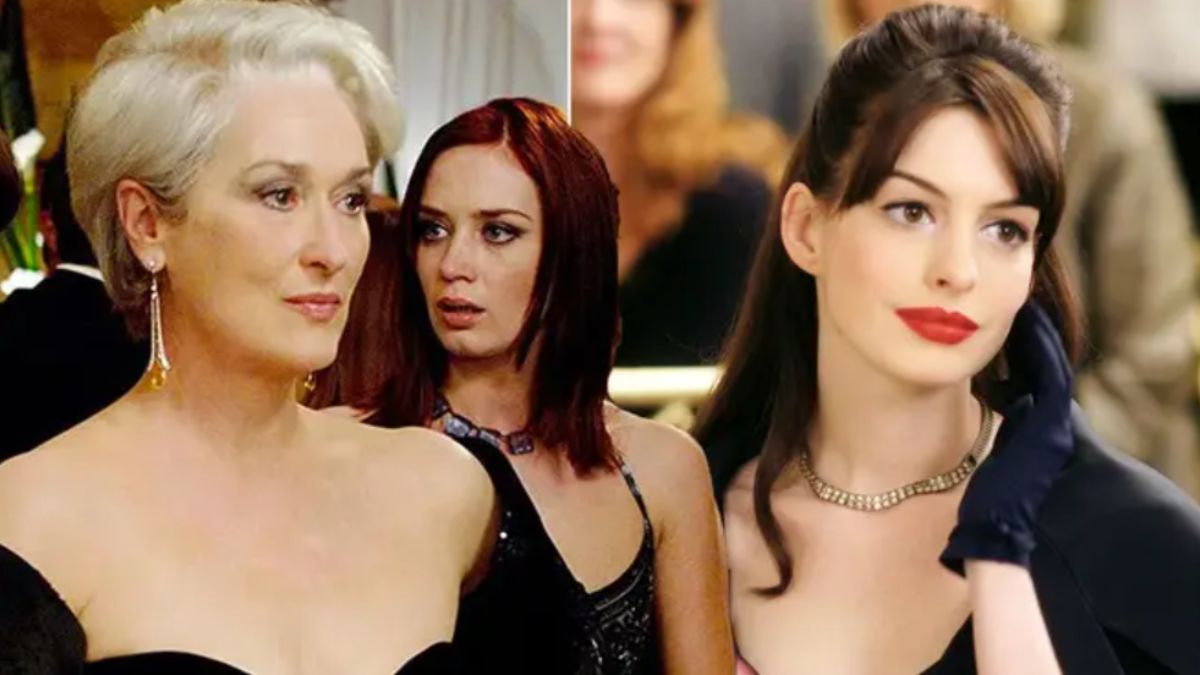- By Sukanya Saha
- Sat, 17 Jun 2023 04:18 PM (IST)
- Source:JND
The Devil Wears Prada Review 17 Years Later: As the 17th anniversary of the iconic 2006 film The Devil Wears Prada approaches, fans are immersing themselves once again in the movie's memorable discussions and cultural highlights. Among these is the ongoing re-evaluation of some of the film's greatest debates. One such debate centres around the question of who truly played the role of the villain: the exceedingly demanding Miranda Priestly portrayed by Meryl Streep or the notably unsupportive boyfriend Nate portrayed by Adrian Grenier.
There may be another perspective to consider. Instead of focusing solely on the two characters, it is worth reevaluating the potential negative effects of the film's glorification of "grind culture." This concept entails prioritising work to the extent that it becomes one's entire life and embracing, and possibly even fetishising, the idea of being exploited in the process. It is important to examine the harm that may arise from such an approach.
The widely known fact is that the highly sought-after and fiercely competitive publication portrayed in the book, The Devil Wears Prada is a thinly disguised representation of Vogue, where Lauren Weisberger, the author, had a short stint as an assistant to the renowned editor Anna Wintour.
The cinematic rendition of Weisberger's novel, released in 2006, achieved a global box office revenue of $326 million primarily due to its voyeuristic presentation. Viewers were able to indulge in the opulence and snobbery of a universally revered fashion authority without actually experiencing the demanding presence of Miranda Priestly, a character resembling Anna Wintour, who had the power to demean employees with a mere glance.
The Devil Wears Prada Plot:
The movie depicts the journey of Andy (portrayed by Anne Hathaway), a recent journalism graduate aspiring to establish herself in the realm of magazine publishing. Unexpectedly, she finds herself thrust into the role of a junior personal assistant to the unfeeling and exacting editor-in-chief of a renowned global fashion magazine.
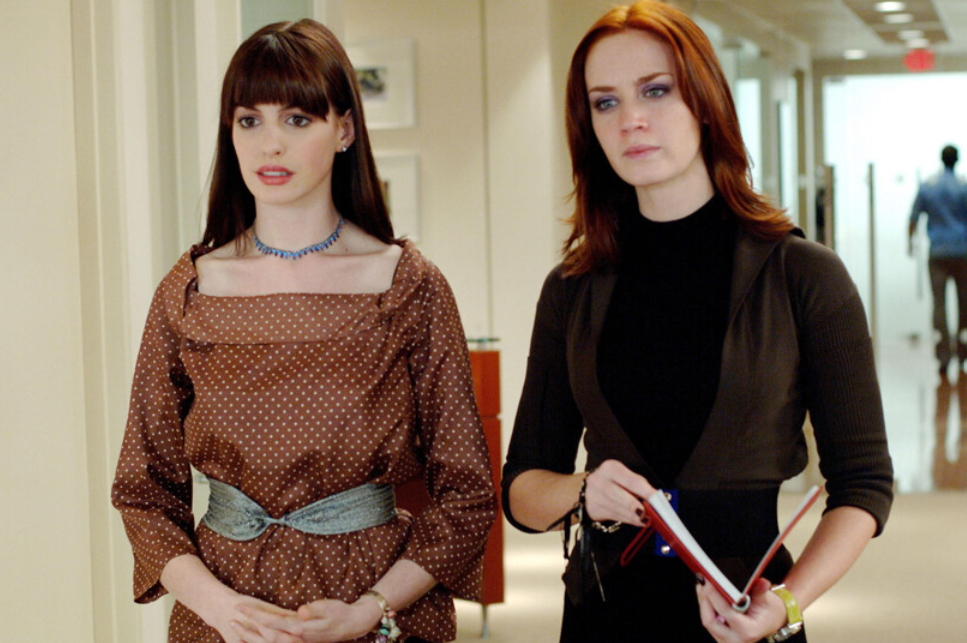
(Image credit: Twitter)
Gradually, Andy makes progress, undergoing a personal transformation by refining her sartorial taste and acquiring a deep understanding of the intricacies of the fashion world. Eventually, she is entrusted by Miranda to take over as the senior personal assistant, replacing Emily (played by Emily Blunt). This journey reaches its pinnacle when Andy delivers a line that has become synonymous with cinematic impact: "You're not going to Paris."
Also read: Extraction 2 Movie Review: Chris Hemsworth's Adrenaline-Fueled Action Will Make You Go Bananas
In the movie, we witness Andy meticulously adhering to Miranda's detailed directives regarding tasks like fetching coffee, managing meals, handling dry cleaning, and various other miscellaneous duties, often with minimal notice and absolutely no margin for mistakes. Andy finds herself immersed in an exhausting work schedule, constantly bombarded by phone calls and confronted with an unending series of daily crises, leaving her with no respite. All of these demands are presumably not just deemed valuable, but imperative for Andy to advance in the realm of journalism, or at the very least, secure a place at Fashion Week in Paris.
What Works For The Film?
Within the film, Andy encounters contrasting leadership styles. The first is embodied by Miranda, characterised by her demanding and fear-based approach. On the other hand, Nigel, the magazine's art director, acknowledges Andy's initial shortcomings, and opts to inspire her rather than belittle or disparage her. It is ultimately Nigel's compassionate and supportive approach that motivates Andy to surpass expectations and excel in her role.
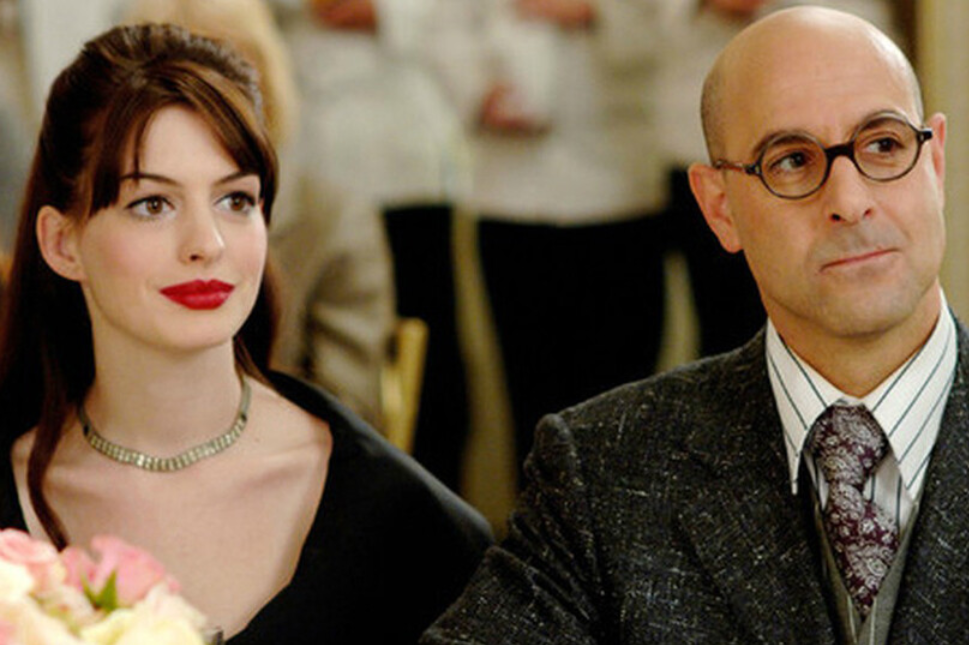
(Image credit: Twitter)
Exceptional leaders avoid fostering a culture of anxiety within their organisations. Instead, they invest time in comprehending their employees and their individual requirements, striving to make them feel appreciated and motivated to deliver exceptional work. By offering positive reinforcement, employees are more inclined to engage actively with their workplace, which directly contributes to the achievement of organisational goals.
What Doesn't Work?
The sequences showcasing Andy's demanding daily routine are intentionally exaggerated for comedic purposes, but in reality, her life resonates with a significant number of young professionals who endure similar circumstances. For these people, the reality is far from humorous, as they work tirelessly for meagre wages, striving for an opportunity to succeed in their chosen fields.
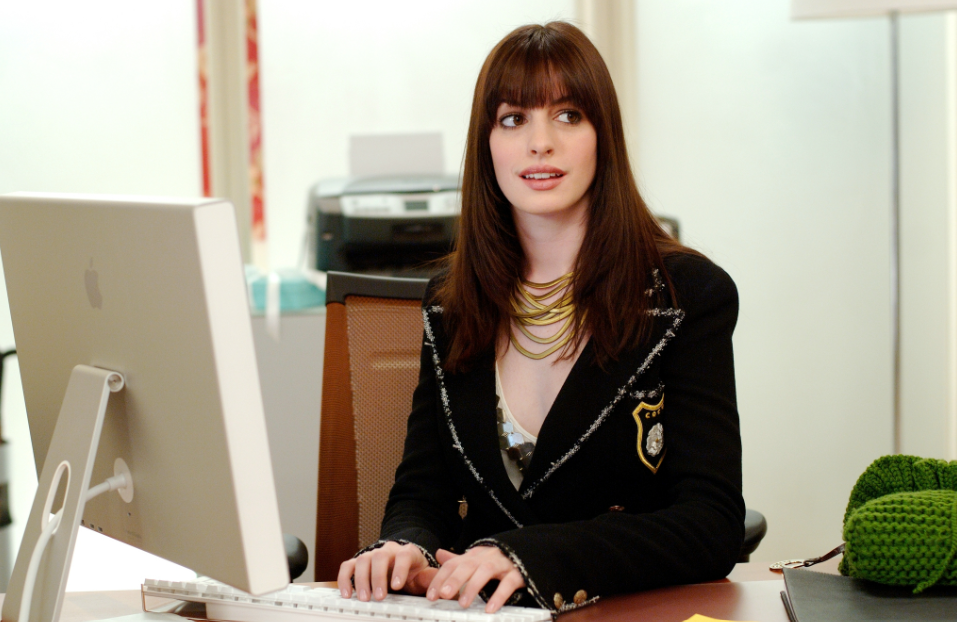
(Image credit: Twitter)
This phenomenon is commonly referred to as "paying your dues," a notion that is often romanticised and advises young minds to accept exploitation in the workplace as the only viable option. They are led to believe that by enduring this path, they will eventually transition from being the object of exploitation to being the one who benefits.
It is reminiscent of how we encourage ordinary workers to defend billionaires' inherent entitlement to accumulate vast wealth, under the assumption that if we work diligently enough, we can also aspire to possess multiple yachts.
A Lot Has Changed In The Years Since TDWP Premiered:
Many traditional magazines have now stopped print publication, social media has eroded the fashion industry's exclusive control, instances of abusive bosses are frequently exposed and held accountable, and even prominent editors now sport unattractive sneakers in the workplace.
In the movie, Emily, undoubtedly exhausted from her demanding schedule and meagre daily sustenance of a single cube of cheese, faces criticism and is made to feel inadequate when she falls ill, becoming what is described as an "incubus of viral plague." This situation sets the stage for Miranda to manipulate Andy and turn her against Emily, resulting in Emily being deprived of the opportunity to fulfil her longstanding dream of going to Paris.
As we revisit the film, our prevailing thought is, 'Just take a damn day off!' Being employed at Runway appears to be an all-consuming ordeal with no respite—a toxic atmosphere where even a momentary lapse can result in a figurative backstabbing at the earliest opportunity. Even Nigel, portrayed brilliantly by the unmatched Stanley Tucci, who has ascended the ranks to become Miranda's trusted right-hand, is not exempt from the strain.
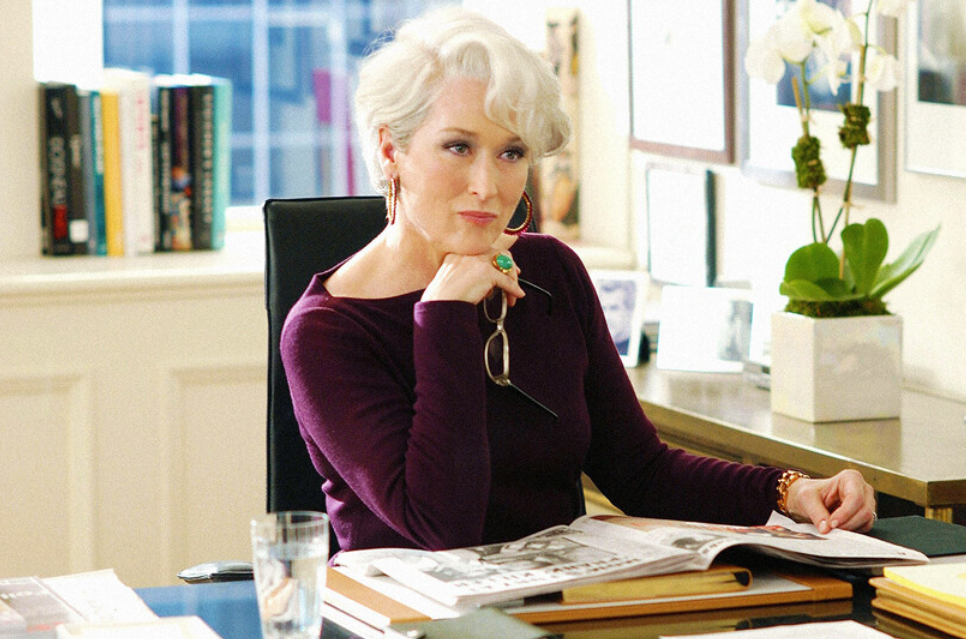
(Image credit: Twitter)
He tells Andy, "Let me know when your whole life goes up in smoke. That means it's time for a promotion." However, when it appears that Nigel's years of loyalty, hard work, and personal sacrifices will finally be recognised, he is betrayed by Miranda in a calculated effort to protect herself, with Nigel becoming mere collateral damage. Is this the kind of workplace that is meant to be desirable? Are Andy and Emily's relentless grind and hustling truly the "dream job that countless girls would do anything for"? Today's generation will definitely pass on that notion.
Fostering Collaborative Community Among Colleagues Instead Of Encouraging Competition:
According to Rainesford Stauffer, as expressed in her book An Ordinary Age, we often intertwine our personal identity with our career aspirations. We assign significant importance to the idea of the "dream job," and we celebrate professional milestones with a level of significance comparable to weddings and births.
However, our current corporate work environment is characterised by a lack of genuine opportunities. It presents itself as a fair competition based on meritocracy, but in reality, it is riddled with inequality, sexism, classism, ableism, and other abhorrent aspects deeply ingrained in our culture.
When viewing the film in the present day, as toxic work cultures and unjust labour practices draw growing scrutiny, and journalism confronts its ongoing struggle with limited pathways to success, the lessons and shortcomings of The Devil Wears Prada become increasingly evident.
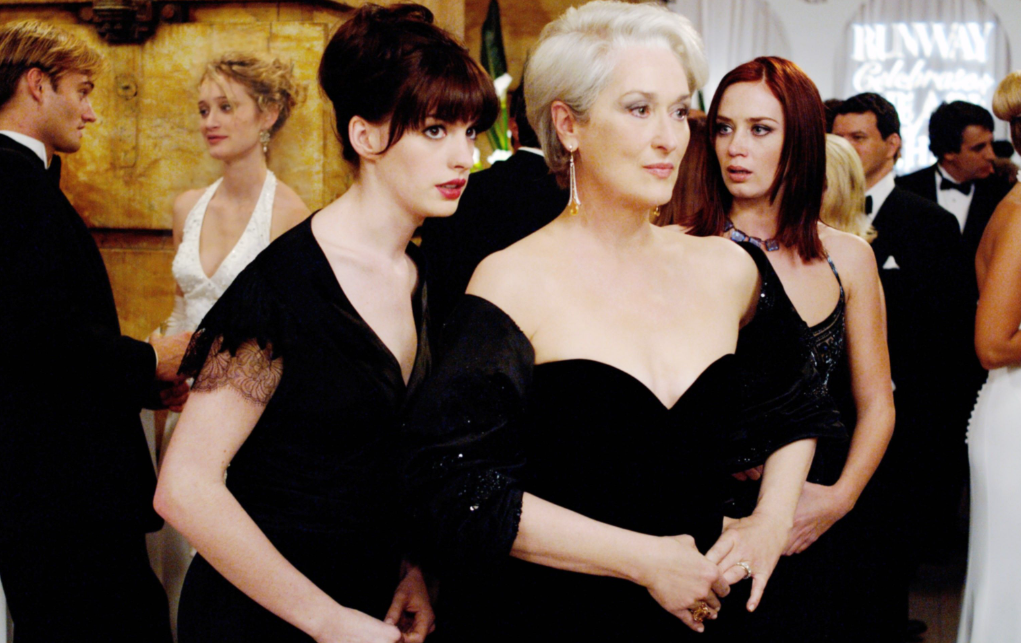
(Image credit: Twitter)
While certain workplaces promote a constructive level of competition, an excessive focus on it can lead to toxic environments. The most exemplary work settings prioritise the establishment of collaborative communities, which significantly enhance the daily work experience. Beyond the positive emotional aspect, fostering a sense of community within a company also contributes to achieving organisational objectives efficiently and with a sense of fulfilment, instead of facing the burdensome task of managing disgruntled employees and the subsequent duplication of efforts.
Final Verdict:
Having established my deep admiration and fondness for TDWP, I must acknowledge that upon rewatching the film, in 2023, after we recovered from a prolonged and perspective-shifting pandemic, my perception of the movie has changed. I can now recognise the film for what it truly represents: a portrayal that celebrates toxic work environments and romanticises the draining and essentially exploitative aspects of a relentless hustle culture.
In my teens, when I initially developed a fondness for TDWP, I remember the moment when Miranda, in the back of that limousine, told Andrea, "Don't be ridiculous, Andrea. Everyone wants this." At that time, I thought to myself, "Of course, who wouldn't want this?" However, now, my perspective has shifted drastically. Absolutely not! It's not something I want for myself. I do not want any part of it.

